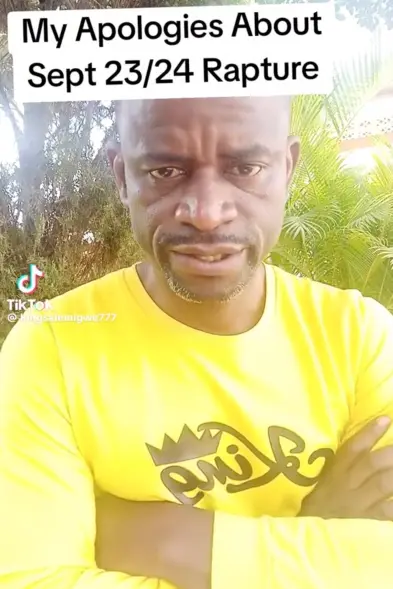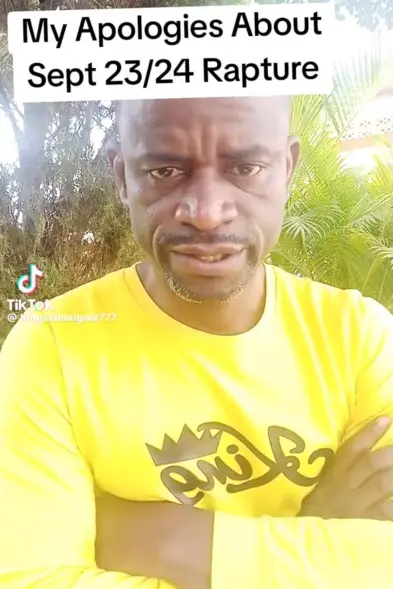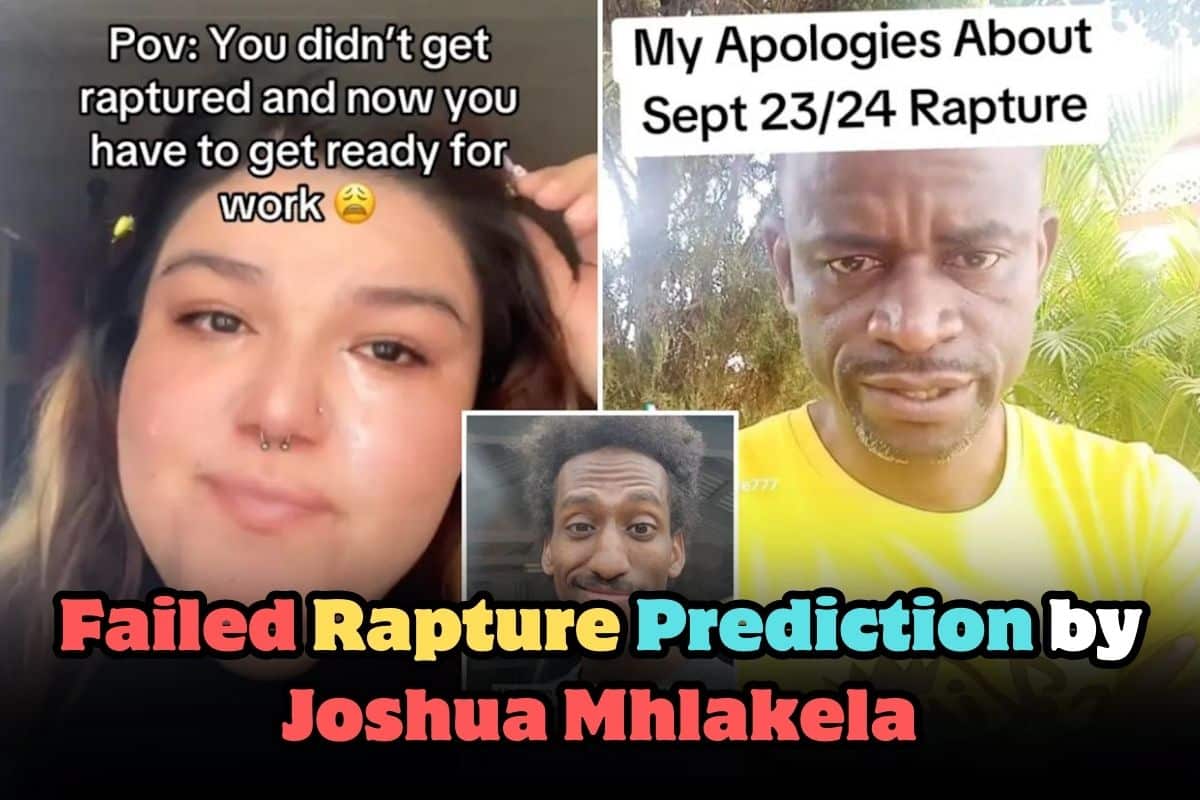A viral prophecy claiming that the Rapture would occur on September 23–24, 2025 failed to materialize, leaving believers around the world disappointed and confused. The prediction, made by South African self-proclaimed “prophet” Joshua Mhlakela, spread widely on social media platforms, especially TikTok, where it gained massive attention under the hashtag #rapturenow.
Followers Abandon Jobs, Sell Possessions Over Failed Rapture Prediction
Some followers acted on Mhlakela’s prediction by quitting their jobs, selling their belongings, skipping exams, and preparing for what they believed would be their ascension to heaven. When the predicted date passed without incident, many expressed heartbreak and regret online.
One TikTok user wrote:
“I didn’t do my exams because I thought it doesn’t matter. Now look at me.” 😢
This emotional backlash sparked trending videos of believers expressing grief, confusion, and frustration over the failed prophecy.
Apology From Religious Figure After Rapture Prediction Fails

Following the failed prediction, an apparent religious leader posted a TikTok video titled “My Apologies” addressing the event. In the video, he said:
“I’m here with all humility to apologize to everyone who have [seen] me promote brother Joshua’s 23rd and 24th date of September rapture.”
The apology video attracted numerous comments from disappointed believers mourning the unfulfilled prophecy.
The Viral Video That Sparked Mass Belief
In June, Joshua Mhlakela claimed that Jesus had appeared to him in a dream in 2018. He said God revealed the exact dates for the Rapture: September 23–24, 2025. Mhlakela described himself as a “simple person,” not a pastor, but his video resonated strongly on TikTok, where the hashtag #rapturenow amassed over 300,000 posts.

How Followers Prepared for the Rapture
Many believers took extreme measures in preparation for the predicted event. Actions included:
- Selling cars and homes.
- Quitting jobs.
- Cancelling plans.
- Leaving doors unlocked for those “not saved.”
One TikTok user posted:
“POV: You didn’t get raptured and now you have to get ready for work.”

Biblical Basis for Rapture Beliefs
The Rapture is rooted in evangelical Christian beliefs, based on interpretations of the New Testament, which states Jesus will return to “take his church” and bring believers to heaven. Some followers now view the failed prediction as a sign that the second coming is still near.
One believer commented:
“The Bible says there’ll be false prophets when the time is near.”
Another added:
“Someone said it was delayed until next week.”
Conclusion: Failed Prophecy Sparks Reflection and Debate
The failed Rapture prediction by Joshua Mhlakela has become a major social media phenomenon, with believers responding with grief, repentance, or renewed faith. While skeptics dismiss the prophecy, others remain convinced that the event is still forthcoming, keeping the conversation alive.



